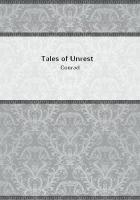As for the matter of Madrono Ranch, it was easy enough he was saying. Naismith would sell. Had desired to sell for the past five years, ever since he had engaged in the enterprise of bottling mineral water at the springs lower down the valley. It was fortunate that he was the owner, for about all the rest of the surrounding land was owned by a Erenchman--an early settler.
He would not part with a foot of it. He was a peasant, with all the peasant's love of the soil, which, in him, had become an obsession, a disease. He was a land-miser. With no business capacity, old and opinionated, he was land poor, and it was an open question which would arrive first, his death or bankruptcy.
As for Madrono Ranch, Naismith owned it and had set the price at fifty dollars an acre. That would be one thousand dollars, for there were twenty acres. As a farming investment, using old-fashioned methods, it was not worth it. As a business investment, yes; for the virtues of the valley were on the eve of being discovered by the outside world, and no better location for a summer home could be found. As a happiness investment in joy of beauty and climate, it was worth a thousand times the price asked. And he knew Naismith would allow time on most of the amount. Edmund's suggestion was that they take a two years' lease, with option to buy, the rent to apply to the purchase if they took it up. Naismith had done that once with a Swiss, who had paid a monthly rental of ten dollars. But the man's wife had died, and he had gone away.
Edmund soon divined Billy's renunciation, though not the nature of it; and several questions brought it forth-- the old pioneer dream of land spaciousness; of cattle on a hundred hills; one hundred and sixty acres of land the smallest thinkable division.
"But you don't need all that land, dear lad," Edmund said softly.
"I see you understand intensive farming. Have you thought about intensive horse-raising?"
Billy's jaw dropped at the smashing newness of the idea. He considered it, but could see no similarity in the two processes.
Unbelief leaped into his eyes.
"You gotta show me!" he cried.
The elder man smiled gently.
"Let us see. In the first place, you don't need those twenty acres except for beauty. There are five acres in the meadow. You don't need more than two of them to make your living at selling vegetables. In fact, you and your wife, working from daylight to dark, cannot properly farm those two acres. Remains three acres.
You have plenty of water for it from the springs. Don't be satisfied with one crop a year, like the rest of the old-fashioned farmers in this valley. Farm it like your vegetable plot, intensively, all the year, in crops that make horse-feed, irrigating, fertilizing, rotating your crops. Those three acres will feed as many horses as heaven knows how huge an area of unseeded, uncared for, wasted pasture would feed. Think it over.














